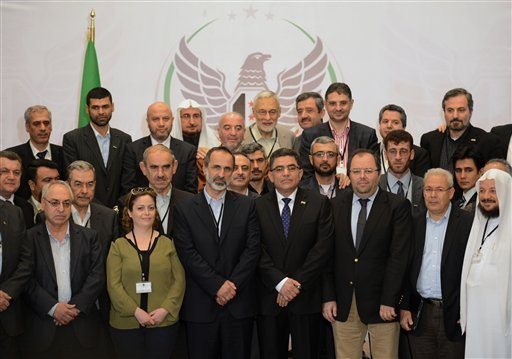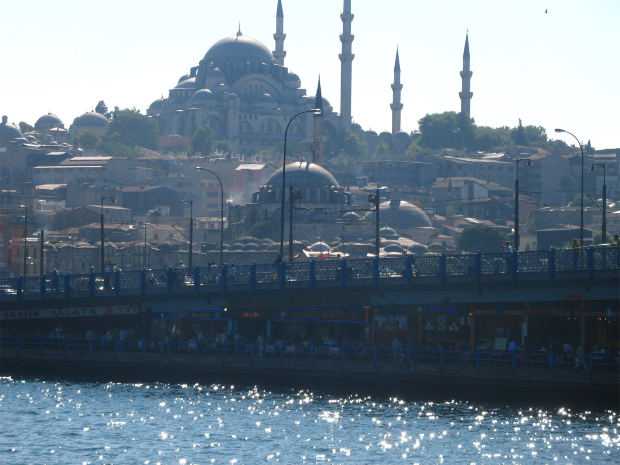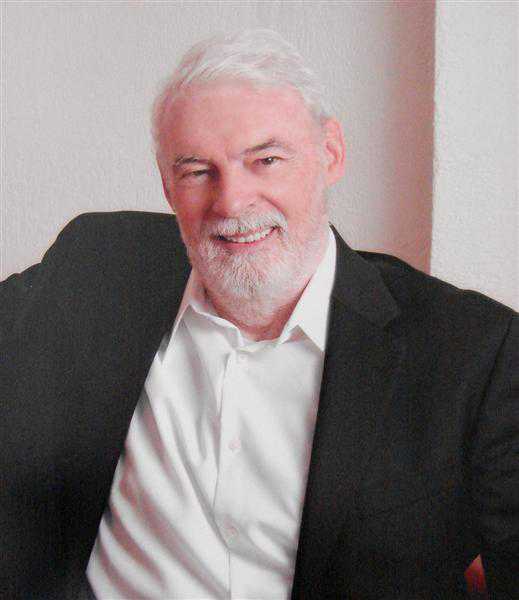BY BEN HUBBARD
ASSOCIATED PRESS

Read more here: http://www.miamiherald.com/2013/03/19/3295208/rebels-pick-us-citizen-as-syrian.html#storylink=cpy
ISTANBUL — The man chosen to head the Syrian opposition’s new interim government is a Syrian-born American citizen who has spent decades in the United States working for technology companies and advocating for various Muslim causes.
Members of the opposition Syrian National Coalition elected Ghassan Hitto in a vote early Tuesday to head an administration they hope will provide an alternative to President Bashar Assad’s regime and help coordinate the fight against his forces.
“The new government will work from the starting point of complete national sovereignty and the unity of the Syrian land and people, which can only by achieved through continued determination to topple Bashar Assad, his regime and all its pillars,” he said in a speech in Istanbul.
Much remains unknown about the body that Hitto will lead, including how many ministers it will have and if it will receive enough support to project its authority inside Syria, where it is supposed to set up operations.
The head of the coalition, Mouaz al-Khatib, threw his support behind the new body, and the head of the coalition’s military leadership, Gen. Salim Idris, did the same Monday before the results were announced.
But the new government could find it difficult to become the top rebel authority in Syria. A patchwork of rebel brigades and local councils has sprung up in areas seized from government forces, many of them struggling to provide services and running their own security, prisons and courts.
Hundreds of loosely affiliated rebels groups are involved in the civil war against government forces, and they are unlikely to submit to an outside authority unless it can provide them with aid such as arms and ammunition.
Due to his many years in the United States, Hitto is little known inside Syria and even among some members of the mostly exile coalition.
Coalition member Salah al-Hamwi, who is in charge of the coalition’s local councils in Hama province, said he had worked with Hitto to deliver aid and was impressed that he had left his life in the U.S. to use his skills for Syria.
“He has the mind of an accountant, not an emotional mind, so he is very good at analyzing what needs to be done,” he said.
Others in the coalition complained of his selection.
Veteran opposition figure Kamal al-Labwani said he suspected Hitto had been put in place by larger political powers, like Qatar, which has heavily financed the opposition, and the Muslim Brotherhood.
He also said he as a coalition member never got to meet or question Hitto before his election.
“I wanted to ask him what the women in Daraya wear and what’s the population of Homs?” he said, suggesting that Hitto was out of touch with Syria.
“I wanted to ask him how many years he’s lived in Syria,” he said. “He left when he was young.”
Hitto won 35 of the 48 votes cast by the coalition’s 63 active members.
In Washington, State Department spokeswoman Victoria Nuland welcomed Hitto’s election, saying the U.S. was aware of his aid work.
“This is an individual who, out of concern for the Syrian people, left a very successful life in Texas to go and work on humanitarian relief for the people of his home country,” she said.
She added: “We’re very hopeful that his election will foster unity and cohesion among the opposition.”
Hitto’s many years abroad and fluent English could facilitate his efforts to win international support for his government. He called on the international community on Tuesday to grant his government Syria’s seats at the Arab League and the United Nations.
Hitto was born in Syria’s capital of Damascus in 1963 and moved to the United States as a young man, where he earned double bachelors’ degrees from Purdue University and an MBA from Indiana Wesleyan University, according to the coalition.
He worked for IT companies and advocated for a number of Muslim causes. After 9/11, he helped found the Muslim Legal Fund of America, which provides legal support to Arabs, Muslims and Asians. He also helped run an Islamic private school in Garland, Texas. Its website describes it as a place “where knowledge, faith, academics and character meet!”
Hitto is a member of Syria’s Kurdish ethnic minority, though he is not considered a representative of the community, which has not joined the coalition.
He is married to a teacher and has four children.
In a speech to a rally in Fort Worth, Texas, in 2012, he spoke of his son, Obaida, who was applying to law school when “he made up his mind … to help the people of Syria.” His son has since been in the embattled city of Deir al-Zour, shooting videos to post online.
The elder Hitto left Texas late last year to move to Turkey, where he helped run the coalition’s aid program to Syria.
In the video of the Fort Worth rally, posted online in September, Hitto criticized Assad’s regime for deploying its army to suppress political protests while not sending it to take back the Golan Heights, which Israel captured from Syria in 1967 and later annexed.
“They were faced with live bullets, with tanks, with soldiers, an army that did not bother to fire a single bullet to claim or to attempt to reclaim its own occupied land for 42 years,” he said.
Associated Press writer Bradley Klapper contributed reporting from Washington.
via ISTANBUL: Rebels pick US citizen as Syrian prime minister – World Wires – MiamiHerald.com.





